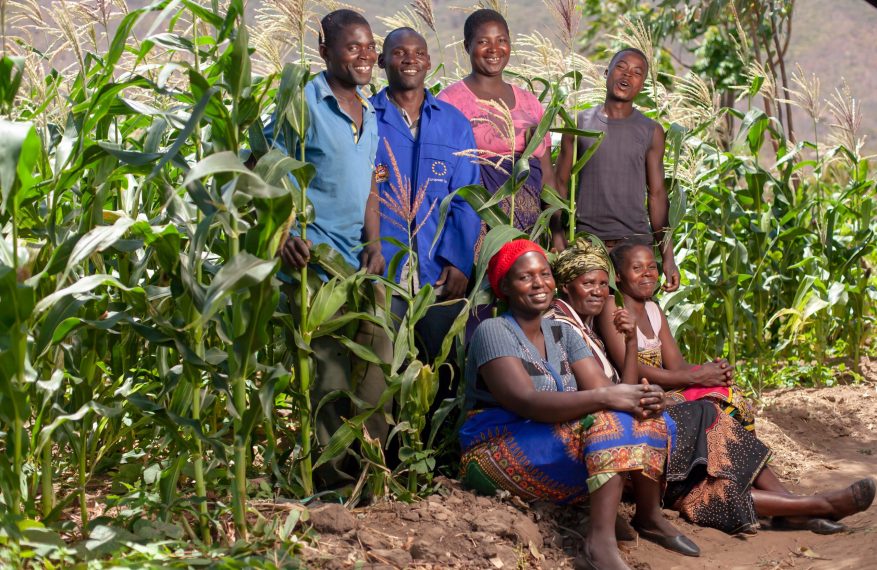Self Help Africa recently finalised the implementation of an innovative five-year programme that brought training and knowledge, and introduced new crops, farm skills and more to over 400,000 small-scale farming households in Malawi.
The KULIMA ‘BETTER’ (Bringing Extension Training Transforming Economic Returns) project, funded by the European Union, saw us team up with several local and international agencies to undertake one of the most expansive and far reaching training projects we have undertaken.
The project used a ‘Farmer Field Schools’ approach – establishing close to 13,000 community-based learning centres – to promote varying methods of sustainable agricultural practices designed to increase incomes, employment, food and nutrition security – all within the context of a changing climate.
KULIMA was designed to support smallholder farmers with access to improved crop varieties, efficient farming methods, and market linkages. The project also focused on empowering women through training, knowledge sharing and resources to become successful farmers and entrepreneurs. Women made up 60% of the people that were reached.
Farmers are trained in a range of topics, including crop management, post-harvest handling, and pesticide management. By sharing their experiences, farmers are able to learn from and improve their farming practices and, as a result, increase productivity.
KULIMA BETTER also promoted the planting of crops suited to the local environment as well as the use of climate-smart agriculture techniques such as water conservation, intercropping, agroforestry and pest and disease management. The use of natural pesticides to repel crop-damaging pests like the fall army-worm is one example of this which you can see in our video.
The making of mbeya manure from animal waste – which works as a cost-free and effective fertiliser – is another great climate-smart technique taught in Farmer Field Schools across Malawi. “Since Urea fertiliser is expensive and for us to make sure farming is profitable, we are providing lessons on how to make mbyeya manure using your own materials” saidstated Ellen Ngoma, master trainer.
Selecting crops and livestock suited to the climate and landscapes of each district was an important consideration. “Knowing the types of crops to grow that will suit our environment was the main challenge” explained Kwanja Nyirenda, a community based facilitator who helped organise poultry production with his local Farmer Field School – helping them to improve income and food security.
Meanwhile, members of Chimwemwe Farmer Field School harnessed the power of the sun by creating a solar dryer to preserve vegetables. “Preserved vegetables are very important because we need them when they become scarce” said Davie Kafwamba, a member of the field school. Farmers were also provided with seed for drought-tolerant crops that can withstand extended periods of hot, dry weather, helping adapt to the effects of climate change.
The project has increased climate-smart practices and the variety of crops by introducing sweet potato, groundnuts, soybeans and more. Mainstreaming of gender in the Farmer Field Schools has resulted in improved gender relations at household level – empowering women by increasing financial independence and sharing access to the household’s assets.
KULIMA BETTER recognises that food security, income generation, and gender equality are all interconnected, and that addressing these issues separately will not lead to effective sustainable development. By taking a multi-faceted approach, the project has been able to achieve significant impact in the communities where it has been implemented.

